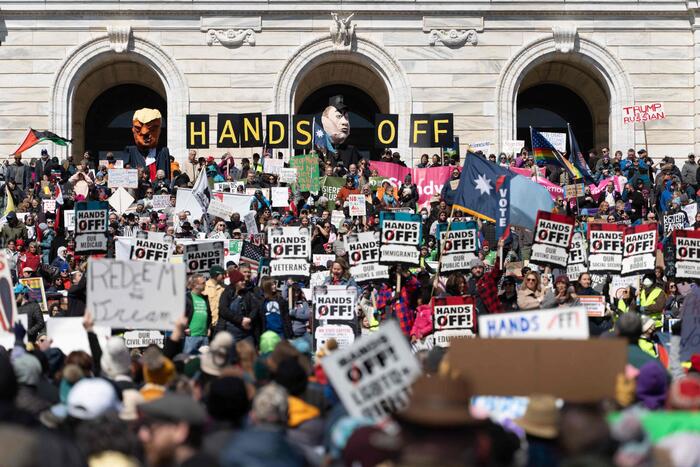On Thursday, July 17, opponents of the Trump administration will take to the streets in many cities across the United States to express their dissent against its policies. The upcoming protests, called “Good Trouble Lives On,” follow other nationwide demonstrations organized by the 50501 movement (50 protests, 50 states, one movement) and other anti-Trump groups.
On June 14, millions of people participated in the “No Kings” protests, coinciding with the mega military parade in Washington, D.C. held to celebrate the 250th anniversary of the U.S. Army and Trump’s 79th birthday. During the July 4 weekend “Free America” events were held across the country to protest government policies.
On Thursday, demonstrations will be held in all 50 states to mark the fifth anniversary of the death of John Lewis, a Democratic congressman and civil rights icon. Lewis often preached the importance of getting into “good trouble,” advocating nonviolent resistance.
The protests will take place in the streets of major cities like New York, Los Angeles, Chicago, Detroit, Denver, Seattle, and Miami.
“We are facing the most brazen rollback of civil rights in generations”, said the organizers of the demonstrations. “Whether you’re outraged by attacks on voting rights, the gutting of essential services, disappearance of our neighbors, or the assault on free speech and our right to protest—this movement is for you. Trump is trying to divide us but we know the power of coming together.”
Allison Pulliam and Christine Wood, co-directors of the Declaration for American Democracy Coalition, explained in a statement that John Lewis “taught us the power of people coming together for peaceful collective action. This is our moment to carry the torch, continue the legacy of John Lewis and pass it forward to future generations.”
On their website, the protesters call for an end to the “extreme repression of civil rights by the Trump administration,” attacks on African Americans, immigrants, transgender people, and other communities, and an end to cuts to programs that workers rely on, “including Medicaid, SNAP, and Social Security.”









